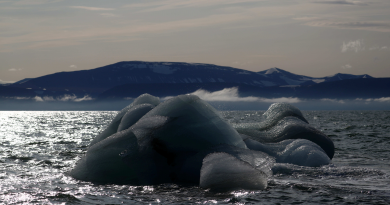Ozone Layer Over Finland Exceptionally Thin
 The ozone layer above Finland has been depleted by a third, according to the Finnish Meteorological Institute (FMI). This makes current levels of ultraviolet radiation three times stronger than the norm, and the institute recommends using protection from the sun.
The ozone layer above Finland has been depleted by a third, according to the Finnish Meteorological Institute (FMI). This makes current levels of ultraviolet radiation three times stronger than the norm, and the institute recommends using protection from the sun.
The area of depleted ozone will remain over Finland at least until next week, when it will shift towards Siberia. However, it could also return to Finland.
“When the ozone layer becomes thinner, UV radiation intensifies,” explains group manager Leif Backman from the FMI. “UV index may rise to about three in southern Finland in the afternoon, which means it’s advisable to protect oneself if one goes outside. Additionally, the snow reflects and strengthens UV rays.”
The institute recommends shielding eyes with sunglasses and wearing sunscreen. Snow intensifies UV rays by a whopping 80-90 percent.
Marked ozone depletion
UV radiation does not usually rise to level three until May. In the summer, the UV index reaches nearly six in Finland and ten at the Baltic. Increased radiation levels mean that the ozone layer over Finland has been depleted—or, in colloquial terms, that there’s a hole in the ozone layer above the country.
Backman says that a significant amount of ozone over Finland—35 percent or more—has been depleted.
Compounds known as CFCs are the main contributors to the depletion of the ozone layer. Carbon dioxide also has destructive effects. It warms up the troposphere, which is the lower part of the Earth’s atmosphere, and depletes ozone when it rises into the atmosphere’s upper levels, the stratosphere.
“Typically it’s said that, the warmer the troposphere becomes, the higher the carbon dioxide concentration. In the stratosphere, carbon dioxide acts in the opposite way, in that it causes the temperatures in the stratosphere to drop, which in turn intensifies ozone depletion.”



